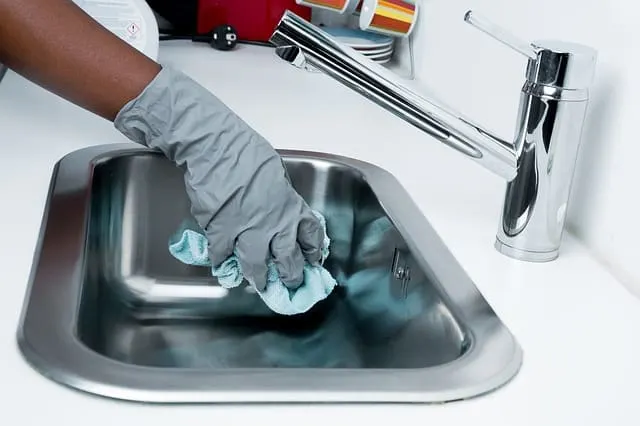
If your sinks and showers are covered in stains and your skin is dry and itchy, you probably have hard water running in your home. Hard water is simply water with a high mineral count. When groundwater filters through limestone, it picks up calcium and magnesium deposits. Although calcium and magnesium aren’t necessarily bad for you, large amounts of these minerals in drinking water is problematic.
While there are several short-term fixes to hard water problems, the best solution is to install a water softener. Water softening can simultaneously extend the life of your plumbing system and appliances and lower your utility bills. Stated below are six anomalies a water softener will address.
Staining
Brown or reddish stains inside your toilet bowl and around the rim of your sinks is a sign of hard water. Staining occurs when tap water evaporates and leaves behind calcium and magnesium.
A short-term way to remove hard water stains is to soak stained fixtures in a bleach-and-detergent solution for several minutes.
To remove stains from faucets, spray the stains with a mixture of vinegar and water before wiping faucets down with a cloth.
Scale Buildup
Mineral deposits can build up on pots, pans, cups, and utensils, leaving behind a hard and chalky film that’s hard to remove.
Even worse, these mineral deposits can gradually accumulate inside your appliances and plumbing system. Since homeowners frequently don’t realize the deposits are there until these deposits cause problems, scale buildup often requires expensive repairs.
Using Salt Free water softener is one of the most efficient ways to remove scale buildup in household appliances.
These systems don’t necessarily remove minerals from water. Rather, they chemically transform them so that they don’t stick to surfaces and appliances. If you’re looking to learn more about saltless water softeners, Waterfilterspot recently published an excellent product comparison guide to the best salt free water softeners.
Dry, Itchy Skin
Thanks to the amount of calcium and magnesium it contains, hard water can cause dry and itchy skin.
Shampoo and soap help, but not enough to negate the problem entirely; many soaps don’t effectively remove the mineral deposits. The after-soap residue of hard water irritates your skin, making it feel itchy and dry.
Gray and Faded Clothes
If your clothes and bedding are faded and gray, you probably have hard water. They may also feel scratchy due to the extra mineral deposits they contain.
A short-term remedy that may help is to wash your laundry with a water-softening detergent. Some people find that using vinegar in conjunction with laundry detergent works too; dilute this mixture with your favorite essential oil, to hide the smell.
High Utility Bills
Mineral deposits from hard water collect on the heating elements of your hot water heater, therefore decreasing efficiency and driving up energy bills.
If you don’t take steps to alleviate this issue, mineral deposit buildup will also increase the possibility of expensive repairs and shorten your water heater’s lifespan.
Professional Water Test
Hard water isn’t difficult to detect; regardless, test your water to know for sure what you’re dealing with.
Buy a DIY water-testing kit from your local hardware store, or contact your local water department and inquire about your water’s mineral count.
While hard water causes a host of unpleasant issues, it’s a relatively easy problem to fix.
The best solution is to have a water softener installed. With proper care and maintenance, water softeners can last for years, making them a cost-effective solution to your hard water problems.
- Sagittarius Man & Gemini Woman Love and Sex Compatibility - January 31, 2024
- Taurus Ascendant Rising Personality Traits in Men (Guide) - January 31, 2024
- How to Seduce and Attract a Sagittarius Man (Seduction Tips) - January 31, 2024
